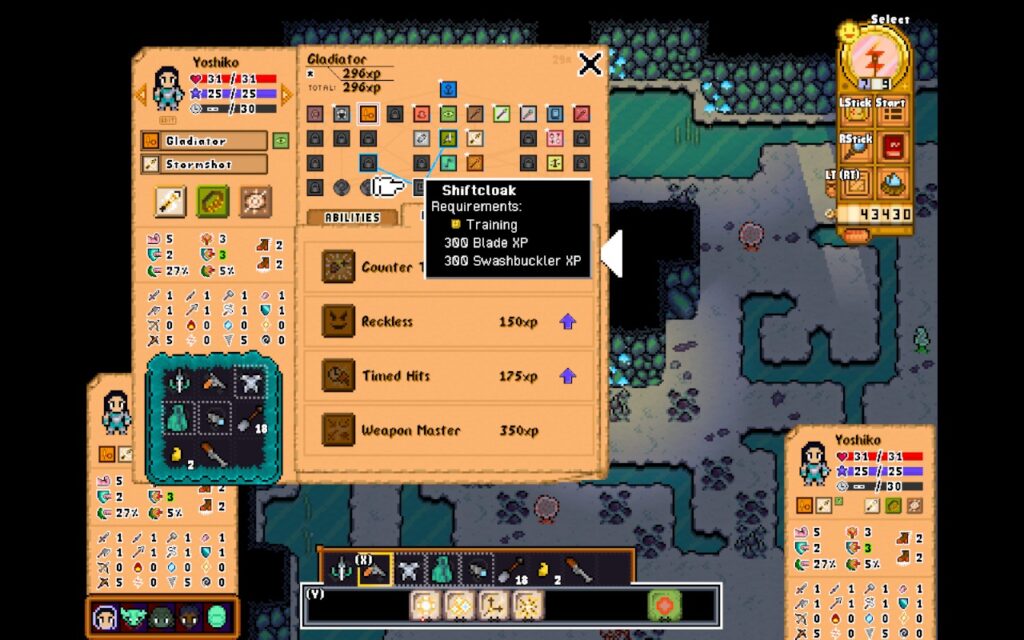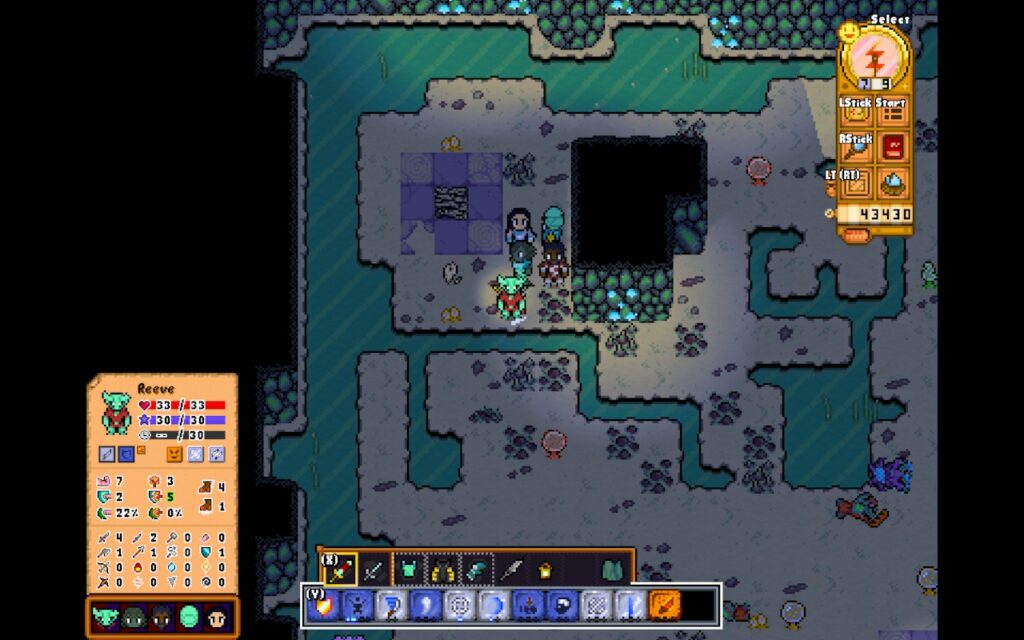Horizon’s Gate
I’ve been playing sandbox-style strategy games for a long time. One of the games instrumental to my fondness for sandboxy games is Uncharted Waters: New Horizons which I’ve written about a fair bit elsewhere. Horizon’s Gate puts Uncharted Waters style exploration front and center – simplifying some of the simulation/strategy elements while fleshing out exploration by adding land combat and classic tactical RPG elements.

Sailing Era went one way with its inspiration from UW – focusing less on role-playing elements and more on storyline, trading, and ship management (like the Uncharted Waters sequels unreleased in the West). Horizon’s Gate goes the opposite route, substantially simplifying trading (each port only sells one trade good) and ship customization (more limited ship selections, but they have accessory slots). While the net result is less relaxing than Uncharted Waters, it feels like a more complete and interesting game – and one that offers a more engaging use of the player’s time. By taking place in a fantasy world, it also removes one potential mental disconnect in Uncharted Waters: as long as the player knows some geography, they really can’t get into too much trouble exploring. You’re typically “exploring” for something you know or suspect is there. Exploration in Horizon’s Gate, on the other hand, can be surprisingly risky as the further you get from the core areas, the fewer and farther between towns are. Likewise, the on-land exploration segments get harder. Thankfully the map supports annotating locations with icons so you can track which ones are dangerous or unexplored.
Horizon’s Gate strikes a fun balance between exploration and pixel-hunting. Some things are straightforward to find but others are not, and environment-based exploration is rewarded. For example, digging up ground that sticks out with a shovel might yield unexpected treasures, or you might find a way to build a bridge with planks to reach new areas.
While trading is simplified to a single trade good per port, goods’ value when sold in other ports is magnified by the distance from the nearest producer of that good. This offers a simple and sensible optimization problem – while a power player might try to figure out the best possible selling place and make a tidy profit, most of the time you can simply take goods a few ports away and get a “good enough” deal to keep your fleet running. Selling too near a source port, while profitable enough, will slow down your moneymaking as port production will not be fast enough to keep up.
The combat system in Horizon’s Gate is tactical. Personally, I’ve been annoyed with some tactical RPG systems as they sometimes get bogged down with too many characters on-screen or run slowly. Horizon’s Gate does neither – most battles are pretty snappy affairs with only a half-dozen characters on either side. Since the battle speed is fully configurable, it’s easy to tweak to a comfortable pace. Even at high speeds, it’s fairly easy to understand what is going on at any given time.
The job/skill system in Horizon’s Gate is intuitive and easy to grasp. One aspect of it that I appreciated is that the job menu is visually designed to group similar types – direct fighters on the left, supports/hybrids in the middle, and spellcasters on the right. While there is some interconnectedness between the trees, it’s usually pretty easy to figure out. Jobs are distinct enough to be interesting, and Horizon’s Gate rewards you for finding synergies between jobs, but there isn’t any particular combination that felt overpowered – just “more powerful”. As you gain experience, you also unlock “stars”: combination attribute/skill points that can be allocated in different passive improvements (HP/MP, weapon skills, elemental skills) based on your active job. They do carry across between jobs, so they’re functionally spendable on virtually any stat/skill.

The combination of exploration and tactical combat is the primary joy of Horizon’s Gate. Both systems flow so well together, and it quickly becomes addictive to push exploration just a little further, or trade for a bit to unlock that next equipment upgrade for a character, and so on. In addition you can progress on the “strategic level” by either doing missions for your chosen country or even founding a new port at some predefined locations (which I think you do have to pledge allegiance to a country to do, unfortunately – no “founding a kingdom”, not that I would have expected it!). Beyond the convenience of a new supply port, the benefits of founding a port seem small – but it’s fun to leave an impact on a virtual world, no matter how small.
Overall Horizon’s Gate is a quick, satisfying tactical RPG / Exploration hybrid. I really enjoyed my time with it, and would like to give it another shot sometime.